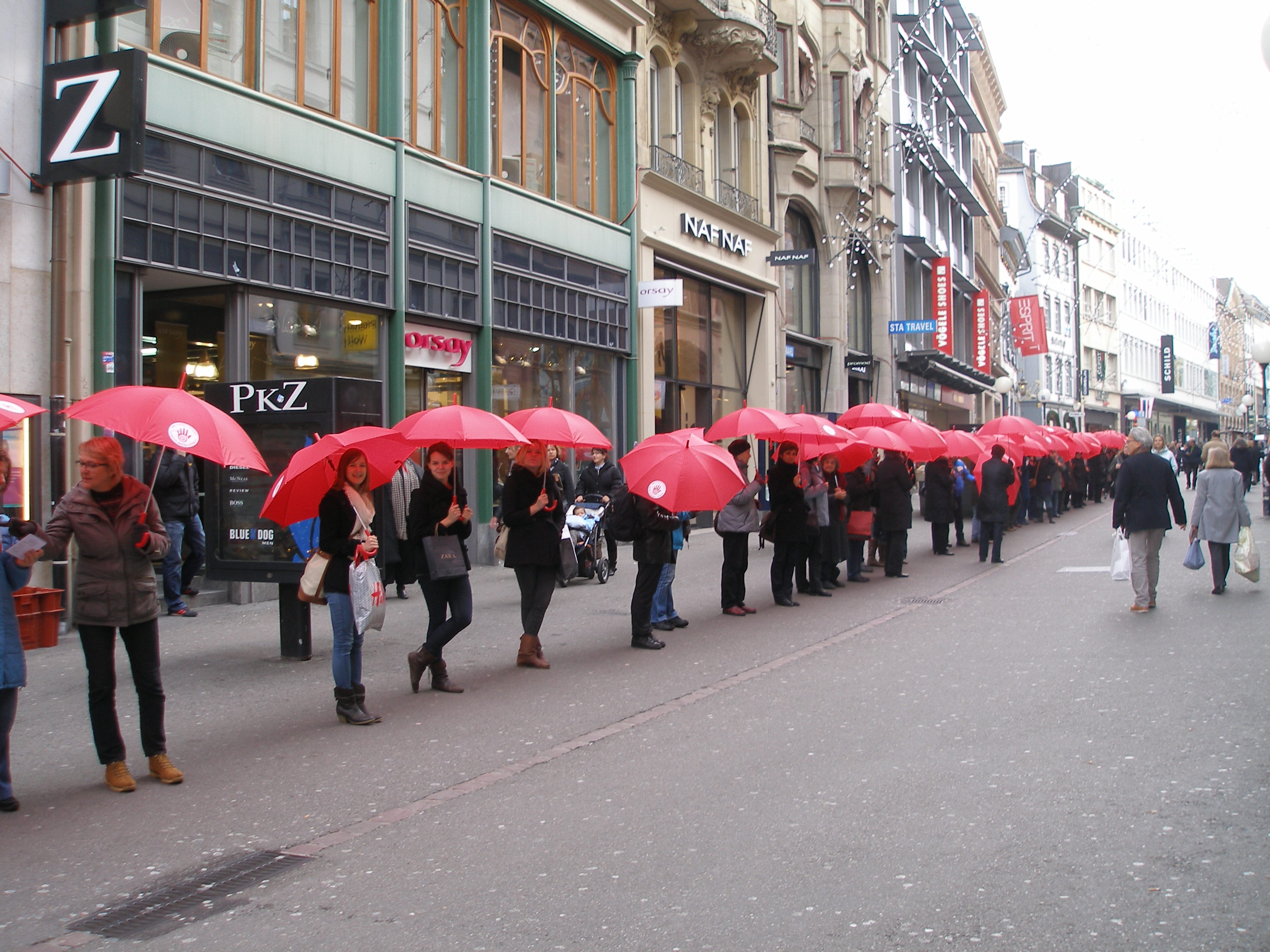
Money woes compound domestic violence problem

Shelters are a crucial provision for victims of domestic violence, but battered women still face huge problems in rebuilding their lives.
That’s according to Claire Magnin of the Women Solidarity support group in the Biel/Bienne region, who has nearly two decades of practical experience as the founder of a centre for victims and their children in northwestern Switzerland.
swissinfo.ch spoke to Magnin ahead of the annual “16 days against violence against women campaign”, which began on Friday.
“Violence is the top primary cause of death for women between the age of 16 and 44 years in Europe,” said Magnin, drawing attention to the dimensions of the social phenomenon.
There is no clear victim profile. They can be young or old, with or without professional qualifications, and from different social backgrounds and regions of the world.
“The one thing in common is that many of them have no financial means,” she added.
Magnin has given up counting the number of women and children who have sought refuge over the past 18 years. There are 12 beds at the centre’s disposal but hardly any of them is ever free.
“So it often happens that we have no place. But we always try to find an alternative solution,” said Magnin.
Every case is carefully examined in consultation with those who seek help and protection at the shelter. Staff will also try to find another shelter in a different region if there is a risk that a violent husband might try to track down his victim.
Safety
“Safety is the most valuable thing we can offer. We cannot tolerate any sort of violence in our shelter,” explained Magnin.
The residents and those who work at the shelter pledge to keep the address confidential. The centre also provides material support and legal, social and psychological advice.
Specialised staff looks after the children at the shelter, among them also a man who organises afternoon activities.
“It is important that the children can have a positive image of a man,” said Magnin.
All the staff at the centre in Biel seek to allow the women to regain their autonomy and feel fully responsible for themselves and their children so they can manage their daily lives independently.
No violence
Every woman is asked to take a turn in doing certain chores for the group. They go shopping and do other household work.
“There is a strict policy of no violence against children or other women,” Magnin stressed.
Victims can stay as long as they need to at the shelter. And women soon begin to look for an apartment as soon as their personal situation improves and tension subsides.
Those who have left the centre can still come back for a few hours a day if they feel the need.
Autonomy
But the road to independence is becoming increasingly long and hard, according to Magnin.
“The aim is to protect the women and let them win back their autonomy.
“But nowadays, we succeed in giving them shelter, but in the current economic situation it is increasingly hard for most of them to find jobs,” said Magnin.
Many of them go from one badly paid temporary employment to another.
“More than a third of those women who currently depend on welfare payments would earn enough to provide for themselves if we had no gender discrimination when it comes to salaries,” argued Magnin.
Minimum wages would help make it impossible for employers to pay salaries of just SFr13 ($14) an hour, she says.
Poverty
Magnin is concerned that the current situation will inevitably lead to more cases of hardship.
“Poverty is often the root of violence. There is a risk that violent behaviour will increase,” she warned.
The centre in Biel has launched an information campaign to help battered women to escape from their aggressors.
A whole range of different courses has been offered at the centre over the past 18 years raise awareness of the issue.
“We have made a point of remaining open to others and cooperating with others. This allows us to become part of public life and keep our doors open to many women in need,” said Magnin.
The campaign, underway since November 25, was launched by the Center for Women’s Leadership 20 years ago.
The start of the campaign links the International Day for the Elimination of Violence against Women with International Human Rights Day on December 10.
More than 50 groups take part in this year’s awareness campaign in Switzerland which joined the global initiative four years ago.
It includes a series of panel discussions, information stands, theatre performances, concerts and films under the banner of Quit – Do not take it any longer.
The centre in Biel is also setting up a special shelter for women up to the age of 21 who have become victims of domestic violence.
The offer – only the second one of this kind – is urgently needed as the number of young women seeking help is on the increase, according to Claire Magnin.
She says young women are faced with new forms of violence, including stalking and blackmail over mobile phones and the internet.
The staff at the Biel centre took special courses to prepare themselves for the new challenge.
(Adapted from Italian by Urs Geiser)

In compliance with the JTI standards
More: SWI swissinfo.ch certified by the Journalism Trust Initiative






























You can find an overview of ongoing debates with our journalists here . Please join us!
If you want to start a conversation about a topic raised in this article or want to report factual errors, email us at english@swissinfo.ch.